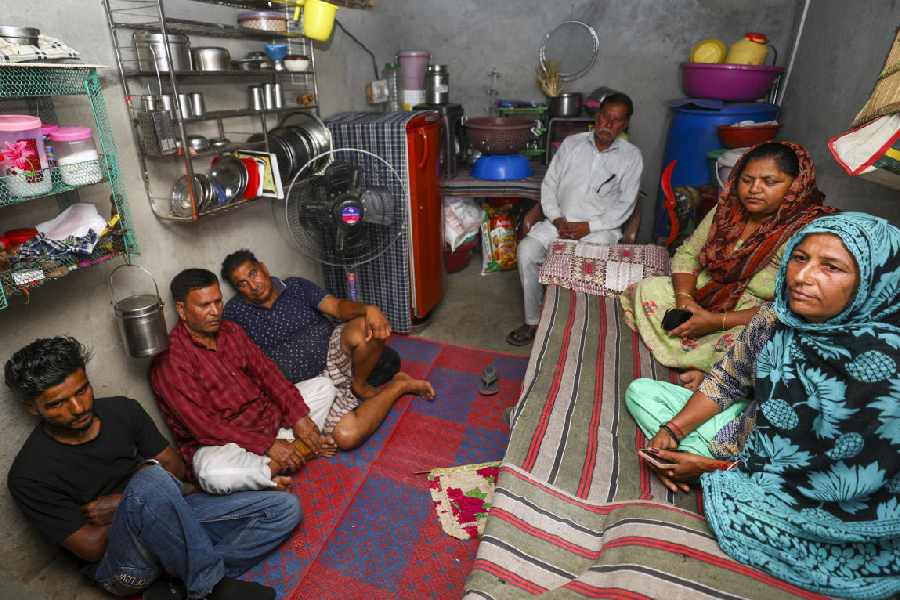India on Thursday sought to keep a rein on the narrative on Operation Sindoor in the face of Pakistan’s “disinformation” campaign, asserting that Wednesday morning’s multi-location strike was a response to Pahalgam and Islamabad would be responsible for any further escalation.
Responding to Pakistan’s charge that Operation Sindoor had targeted civilians, foreign secretary Vikram Misri flagged a widely circulated photograph of the funeral of people killed in the operation, showing bodies draped in the Pakistani flag and men in uniform paying their last respects.
“Giving terrorists state funerals may be a practice in Pakistan. It doesn’t seem to make much sense to us,” Misri said.
Briefing journalists after 24 hours of action from both sides, Misri sought to counter the salient features of the “disinformation” being spreadby Pakistan.
He did not address Pakistan’s claim about downing Indian aircraft and refused to answer whether India’s alleged neutralisation of Pakistan’s air defence radars on Thursday would give New Delhi an advantage in the event of further escalation. He saidhe would not go into operational details as this was an evolving situation.
Denying the charge that India had escalated matters with Operation Sindoor,Misri said: “The attack of April 22 in Pahalgam is the original escalation. Our armed forces responded to that escalation yesterday.”
He continued: “Our intention is not to escalate matters; we are only responding to the original escalation and our response has been targeted, precise, controlled and measured. No military targets have been selected. Only terrorist infrastructure in Pakistan has been hit.”
He indicated that while India had kept the Indus Waters Treaty in abeyance following the Pahalgam attack, the move was dictated by Pakistan repeatedly violating the accord and refusing New Delhi’s requests over the past two years to engage in government-to-government discussions to modify it.
India wants the treaty amended in the light of technological advances and the demands of climate change and demographic changes.
Misri described Pakistan’s allegation that India had targeted the Neelum-Jhelum hydropower project as an “absolute and complete fabrication and a blatant lie”.
He warned that if this claim was a pretext for Islamabad targeting Indian infrastructure of a similar nature, “Pakistan will be entirelyresponsible for the consequences that will undoubtedly follow”.
On India not responding to Pakistan’s offer of a joint investigation into Pahalgam, Misri underlined Islamabad’s track record on this count, particularly the fate of similar exercises after the Mumbai and Pathankot terror attacks.
“These are just delaying tactics. These are just stonewalling tactics. And in fact, there is reason to believe that Pakistan uses the evidence we provide to cover its tracks, and defend the terrorists who we are looking for, and obstruct the path of investigation,”he said.
Dwelling on the Pathankot experience, he said: “We gave unprecedented access to the Pakistani team to the site of the attack. Details of call records, and DNA, etc, was shared with Pakistan….
“We presented evidence against the office-bearers of Jaish-e-Mohammad who had conspired in the attack, and the handlers of the terrorists who facilitated them and guided them in. But there has been no movement on this.”
India has also denied the charge that Operation Sindoor has targeted religious sites.
This is something Misri was asked at a briefing for foreign envoys on Wednesday, too, and the government’s reply was that the mosque was within a training complexfor terrorists.
Misri emphasised that Pakistan had targeted a gurudwara in Poonch on Wednesday night. Three Sikhs were killed in the cross-border shelling, he added.










